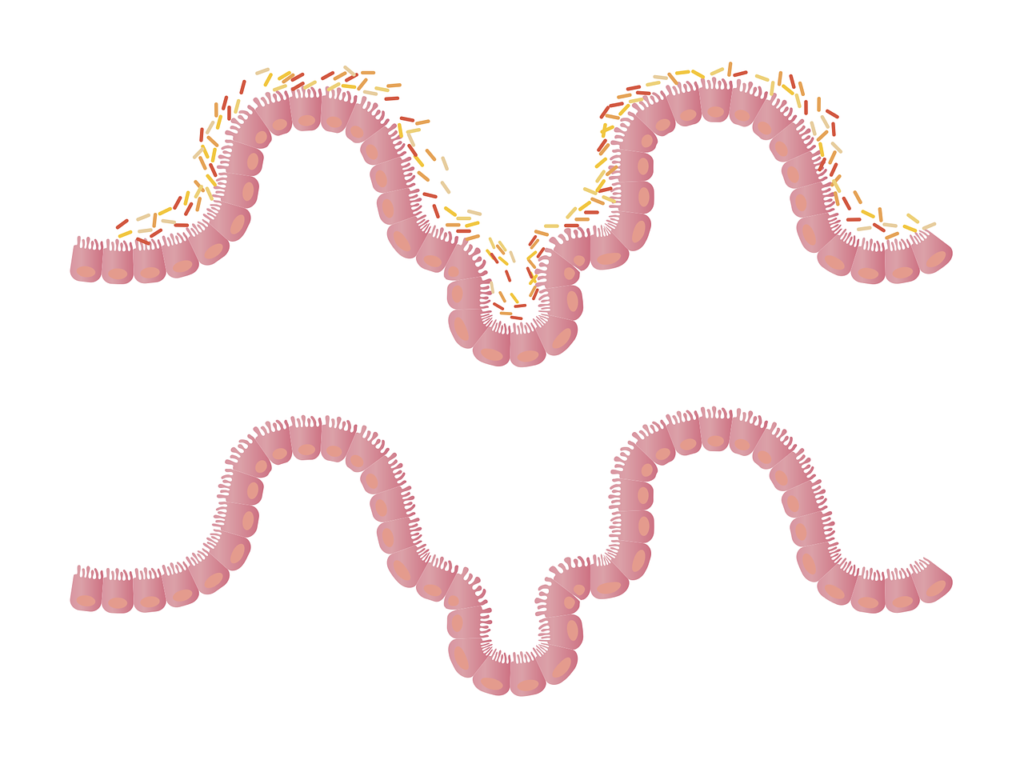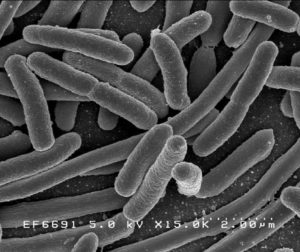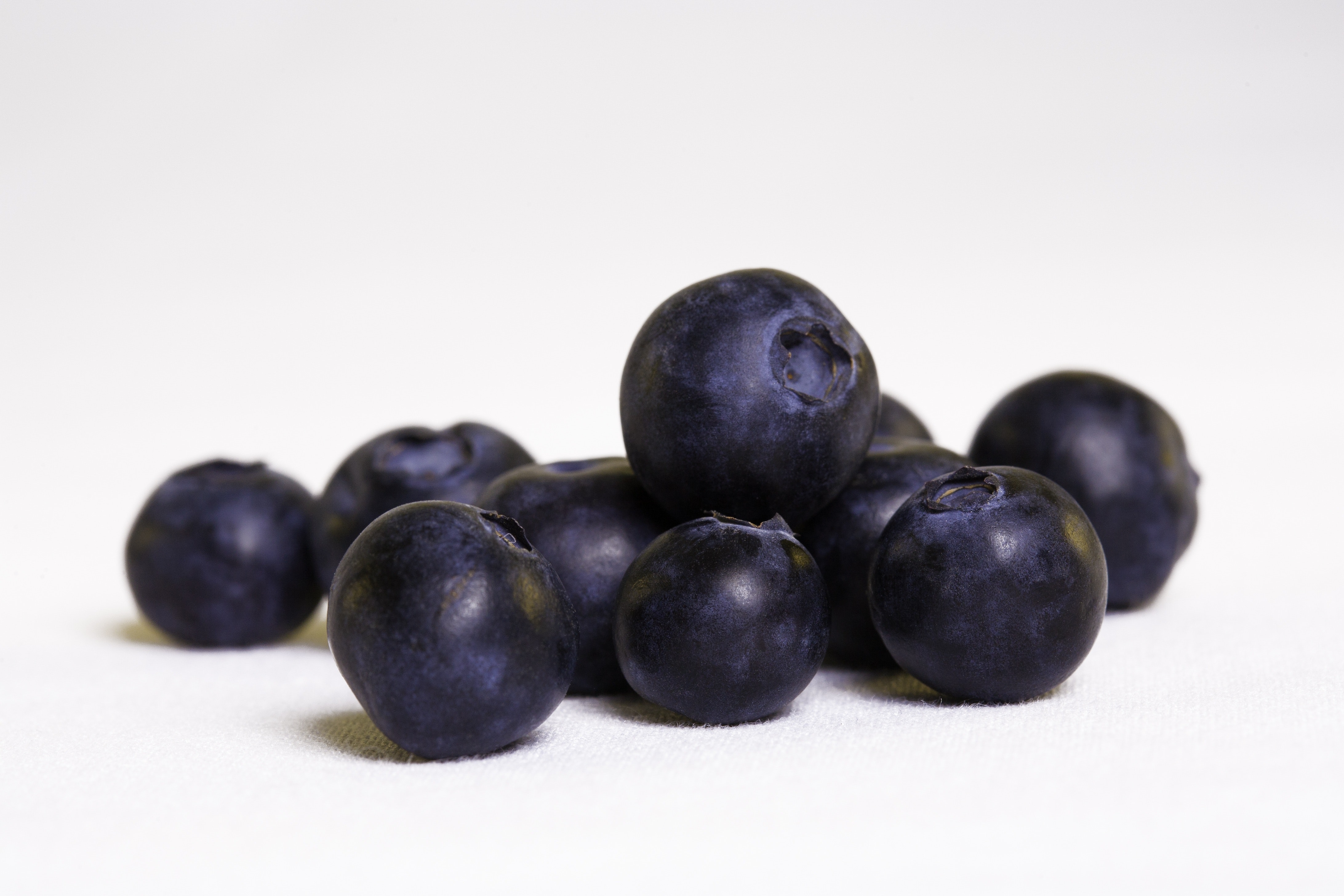
You are made up of around 70 trillion cells— half of which (or more) are non-human. They are part of the microbiome, the name for everyone’s personal, discreet collection of bacteria and other microbes! In a way, to understand the interdependence of our microbiome and our health is to understand what it means to be human.

While we are in many ways just beginning to scratch the surface of the human-microbiome relationship, we know for certain that it definitely isn’t one-way. Think about the remora and the shark:The remora fish feed off of the shark’s waste —“crumbs” left behind from the shark’s meals, parasites on the surface of the shark’s skin, and in some cases, even its feces (ew). These weird little fish cause no harm to the shark, but if they weren’t there, the shark would be left vulnerable to parasites. We have a similar relationship with our microbiome, in a more complex way. Our bodies are not completely sterile. There are too many little “crumbs” for critters to feed on. Microbes can help prevent infections or cause them, depending on the type.
Where does the microbiome come from? It starts at the very beginning, when a baby is seeded with her mother’s microbiome as she travels through the birth canal. If a baby is delivered via c-section, she starts out with a different set of microbes, which predispose her to a distinct set of health conditions.

The vast majority of our body’s microbes reside in the digestive tract. These bacteria, viruses, fungi, and protozoa do more than just feed off your “crumbs:” They digest some foods your body wouldn’t otherwise be able to (like some starches and fibers), and synthesize chemical compounds that your body needs (including certain vitamins and amino acids). While the intricacies of these organisms’ interactions are not yet fully understood, studies are finding links between the gut microbiome and our mood, immune system function, metabolic rate, and more.
For now, we do know that increasing the diversity of microorganisms in our gut can boost our overall health. Just as forests with more varieties of trees are more resilient in the face of infestation or disease, so is the gut microbiome. Consider the Hadza people of Tanzania, one of the last remaining true hunter-gatherer societies on the planet. Their diet consists almost entirely of foraged tubers, berries, honey, and meats — depending on seasonal availability — and it is far more varied than the typical diet of people living in post-industrial societies. The result is greater diversity in the Hadza microbiome, and despite little to no healthcare access, relatively low rates of metabolic disease, infectious disease, and nutritional deficiencies.
A foraging lifestyle isn’t practical or even possible for many of us, but luckily it doesn’t take drastic lifestyle changes to support your helpful microbes and weaken the harmful ones.

Here are 9 easy ways to diversify your microbiome and live more like the Hadza:
1. Eat probiotic-rich foods.
Probiotics are live bacteria and yeasts in fermented foods that when eaten are incorporated into our microbiome. Good food sources include sauerkraut, kefir, kombucha, miso, tempeh and kimchi.
2. Eat prebiotic-rich foods.
Prebiotics are fiber-rich foods that aren’t digested by the human body but are a good source of nutrition for beneficial gut microbes. They include Jerusalem artichokes, leeks, onions, garlic, asparagus, soy beans, spinach, jicama, beans, oats, and whole wheat. Speaking of which…
3. Make fiber your friend.
It’s not just that fiber feeds the microbiome. Without enough fiber, the colon’s protective mucus barrier begins to break down, which increases inflammation and susceptibility to infection. Prevent that by eating plenty of vegetables, fruit, beans, nuts, and whole grains. For a super-simple fiber fix, sprinkle Chia or ground flax seeds on salads, yogurts, oatmeal, or anything else.
4. Reduce your red meat intake.
Red meat and fried foods have been shown to promote unhealthy gut bacteria and inflammation. Try an Impossible Burger!
5. Just Say No to artificial sweeteners.
Sucralose, aspartame, and saccharin disrupt the gut flora balance, which leads to less microbial diversity.
6.Pump up your polyphenols.
If you really want to treat your microbiome right, feed it polyphenols: antioxidant-rich micronutrients that also act as a food source for benevolent microbes. Nuts, seeds, berries, olive oil, coffee, and tea (especially green tea) are all deliciously efficient ways of adding polyphenols to your diet.
7. Limit antibiotic use.
Misusing antibiotics is a great way to murder perfectly healthy (and necessary) bacteria. When you are sick, talk with your doctor to determine if antibiotics are needed, and always take the full course prescribed.
8. Avoid highly processed foods!
If polyphenols give your microbes a gourmet meal, eating processed foods is like making them eat from the garbage. And that’s not what we mean by a foraged diet! Not only are processed foods very poor sources of the nutrients your microbiome needs, but products like Trident gum, Pop Tarts, Coffee-Mate Creamer, and “frosted” foods, to name a few, are also very rich sources of nanoparticles. Research indicates that certain nanoparticles may help to protect the gut from pathogenic bacteria, while others may inhibit the growth of beneficial bacteria. Because manufacturers are not required to label these ingredients, you won’t necessarily know when you’re consuming them.
9. Cancel that trip to space?

In the future, we hope to harness the power of our microbiomes even more effectively. Promising research shows that certain strains of gut bacteria may augment cancer treatment therapies by boosting the immune system’s response. Further studies are needed to determine the specific combinations of bacterial varieties, cancers, and treatments that are effective, but researchers from the US, France, and beyond all seem to agree that the potential is there. We’ve also seen evidence suggesting that a transplant of fecal material may confer the benefits of a healthy microbiome to the recipient. Biotech companies are racing to find treatments that can be tailored to an individual’s specific microbiota to restore balance and cure diseases.
For now, at least, we can’t rely on someone else’s poop to save us, so it’s up to us to optimize our “crumbs” and support our body’s ecosystem to the best of our abilities.
